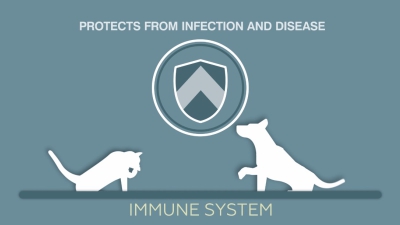Proteins play an important role as they are an essential component of the skin and hair. Hair is 95% protein and almost 1/3 is used for skin renewal and hair growth. The role of protein is therefore fundamental to the beauty of the skin and coat.
VETERINARY HPM® CAT FOOD FOR ADULT NEUTERED CATS
Adult Neutered Cat is specially formulated for neutered cats from 12 months of age, who have a predisposition to gain excess weight. VETERINARY HPM® responds to your neutered cat’s specific needs.
- Body weight control: low energy content to limit the calorie intake
- Urinary health: water intake stimulation, increases the volume of urine and helps stabilise the pH
- Healthy renal function: high level of protein to effective water turnover
Available sizes:
- 0,4 kg
- 1,5 kg
- 3 kg
Nutrion for carnivorious paragraph
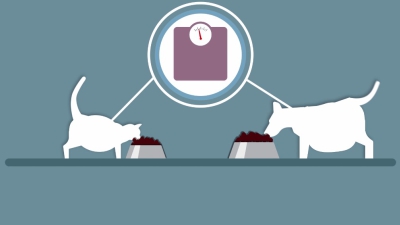
By promoting satiety and the development of lean body mass (including muscle) rather than fat, protein helps dogs and cats maintain a healthy weight. Fibre is also added as well as L-carnitine to help limit fat storage.
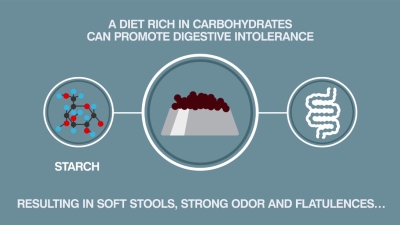
A food that is too rich in carbohydrates can be poorly tolerated and cause loose stools and unpleasant odours.
Low carbohydrate levels, well digestible proteins and the addition of functional ingredients (lactobacilli, montmorillonite, sepiolite, etc.) help to maintain good digestive tolerance.
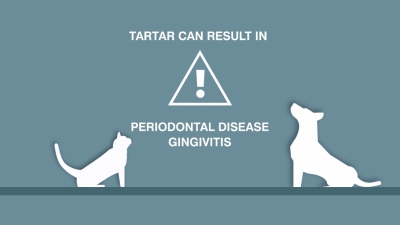
Pentasodium triphosphate supplementation helps to limit plaque and tartar formation and contributes to good oral health.
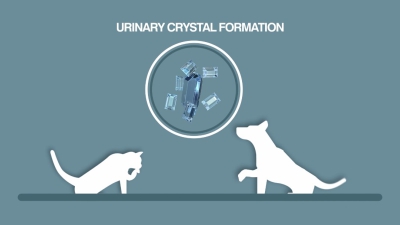
By stimulating drinking and promoting naturally acidic urine, protein helps to maintain good urinary health.
A functional ingredient, cynarin, is also added to help dilute his urine.
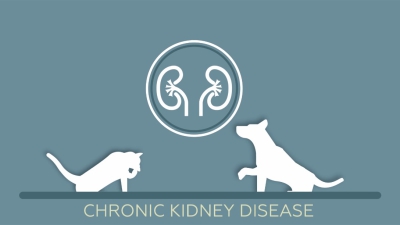
High protein content contributes to efficient water turnover in the body. Controlled phosphorus intake helps maintain good kidney health.
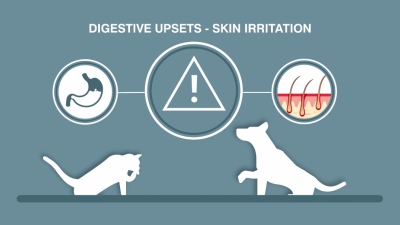
To avoid food allergies, our food does not contain beef, dairy, egg, wheat, corn, gluten or soy (ingredients that can cause food allergies), which reduces the risk of food intolerance.
The high protein content helps to maintain muscle mass. Chondroitin and chitosan supplementation helps maintain joint elasticity.
Composition :
Dehydrated pork and poultry proteins, Lignocellulose, Potato starch (min. 4%), Hydrolysed pork and poultry proteins, Animal fats, Rice (min. 4%), Peas, Minerals, Faba bean hulls, Linseed, Beet pulp, Brewers yeast, Psyllium fibre (Plantago (L.) spp.), Fructo-oligosaccharides, Hydrolysed crustacean (source of chitosan), Chondroitin sulphate, Lactobacillus acidophilus.
Veterinary HPM® does not contain any artificial colours or flavours.
Analytical constituents :
(% as fed)
| Analytical Constituents (% as fed) |
|
|---|---|
| Moisture | 5,5 % |
| Protein | 44 % |
| Animal to vegetal protein ratio | 90/10 |
| Fat | 13,5 % |
| Minerals | 8,5 % |
| Crude Fibre | 10,5 % |
| NFE * | 18 % |
| Starch | 11,5 % |
| Calcium | 1,3 % |
| Phosphorus | 1,1 % |
| Sodium | 0,7 % |
| Omega-6 | 2,4 % |
| Omega-3 | 0,8 % |
| ME** calculated | 352 kcal/100g |
| ME** measured in vivo | 342 kcal/100g |
| * Nitrogen Free Extract: Carbohydrates ** Metabolisable energy |
|
| Functional Ingredients | |
|---|---|
| Bentonite | 5 g/kg |
| Killed Lactobacilli | 7 mg/kg |
| L-carnitine | 540 mg/kg |
| Pentasodium triphosphate | 0,35 % |
| Chitosan | 800 mg/kg |
| Vitamins and trace minerals | |
|---|---|
| Vitamin A | 17 000 IU/kg |
| Vitamin D3 | 1 700 IU/kg |
| Vitamin E | 610 mg/kg |
| Vitamin K3 | 0,22 mg/kg |
| Vitamin B1 | 11,2 mg/kg |
| Vitamin B2 | 8 mg/kg |
| Vitamin B3 | 113,4 mg/kg |
| Vitamin B5 | 14,5 mg/kg |
| Vitamin B6 | 7,6 mg/kg |
| Vitamin B8 | 0,15 mg/kg |
| Vitamin B9 | 1,9 mg/kg |
| Vitamin B12 | 0,046 mg/kg |
| Choline | 1 760 mg/kg |
| Taurine | 2 460 mg/kg |
| Copper | 12 mg/kg |
| Iodin | 0,4 mg/kg |
| Zinc | 110 mg/kg |
It is advisable to follow the ration table and make fresh water available.
| Body weight (kg) | Daily Ration (g/day)* | |
|---|---|---|
| Indoor exclusively | Indoor & Outdoor | |
| 2 | 25 | 25 |
| 3 | 35 | 40 |
| 4 | 45 | 55 |
| 5 | 60 | 65 |
| 6 | 70 | 80 |
| 7 | 85 | 90 |
| 8 | 95 | 105 |
| 9 | 105 | 120 |
| 10 | 120 | 130 |
|
* These amounts are indicative and may vary depending on the breed of cat. For further information, please consult your veterinary surgeon. |
||
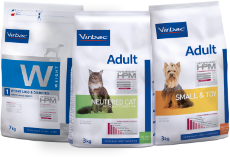
- Can I feed my kitten with a home-made diet?
The food that kittens receive throughout their first year must obviously provide energy and materials to build the skeleton, muscles, and all new tissues. But nutrition doesn't stop there: it must also help kittens develop a fully functioning nervous system and effective immune system. Any deficiency in essential nutrients (those that cannot be synthesized by the animal's body) during this delicate period may affect the cat's future health.
Many recipes developed by veterinary nutritionists are available for owners who wish to prepare a nutritionally balanced home-made diet for their kitten. However, it is illusory to succeed in meeting all the required conditions because the nutritional balance of a household ration is subject to various hazards. Owners will always find it difficult to follow the recipe exactly, the necessary ingredients are not always available, and the nutritional composition can vary considerably depending on the origin of the product. With home-made diets, no laboratory analysis can verify the nutritional composition of the raw materials used.
Therefore, even when accompanied by a mineral and vitamin supplement, home-made diets for cats often show deficiencies in several nutrients such as choline, iron, and thiamine. In addition, cats cannot synthesize vitamin D as humans do (via exposure to UV rays), so this vitamin must be provided daily in the diet. For these reasons, choosing the best adult cat food—commercially prepared with the right balance of nutrients—is a safer and more reliable option as your kitten transitions into adulthood.
- Can I feed my kitten with a vegetarian diet?
The cat is a strict carnivore, which means that certain nutrients it needs cannot be provided by a plant-based diet. Such diets can cause major nutritional deficiencies with serious health consequences. For this reason, a kitten should never be fed a vegetarian diet. Opting for premium adult cat food when the time comes ensures a nutritionally sound, meat-based formula that supports lifelong health.
- Can I feed my kitten with raw meat diets?
Raw meat diets (red meat or chicken) are very popular among certain cat breeders but raw meat diets are deficient in calcium and phosphorus. The Calcium/Phosphorus ratio is totally inappropriate for the feline species, especially in terms of bone growth. Such a diet can cause major nutritional deficiencies with serious consequences on health. For example, when fed exclusively a raw meat diet, the kitten is exposed to the risk of pathologic fractures following minor trauma.
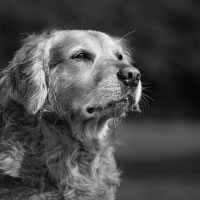
more than 6 vets out of 10 recommend our food
(source: GIE AC 2020 survey, 1519 responses)
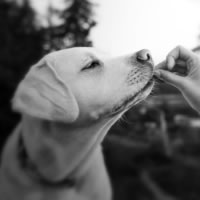
on average, our food is rated above 4/5
(source: * conso animo, shopmium, que choisir and 60 millions conso)
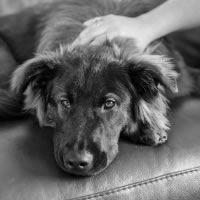
94% acceptance for medium and large dogs, 92% for small and very small dogs and 84% for cats



.jpg)
